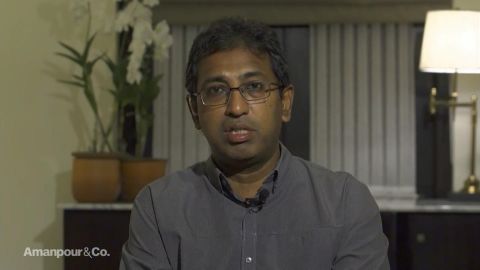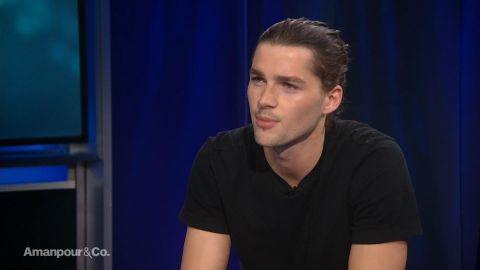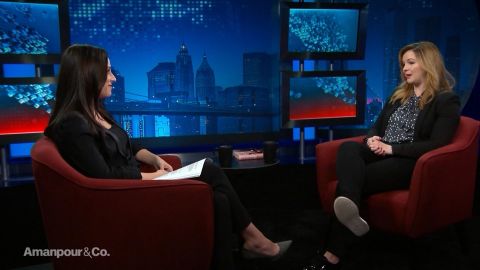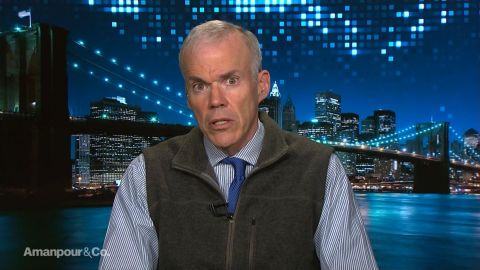Read Transcript EXPAND
BILL MCKIBBEN, AUTHOR, “FALTER”: There obviously is rising concern with each year that goes by that we do nothing. And I think now we’re starting to act on it. The question is can we act fast enough? Climate change is the first timed test that human beings have come up against. If we don’t solve it soon, we won’t solve it. And so that’s why this need for urgency, that’s why there are people in the streets. That’s why there are people going to jail. That’s why there are people working around the clock to try and build the collisions to put enough pressure on the power that powers the B.
Look, 50 years from now we’re going to run the planet on sun and wind because it’s free. But if we take 50 years to get there, then the planet we run on sun and wind is going to be a broken planet. Our job is to speed up that transition so that we have civilizations left worth powering with renewable energy.
CHRISTIANE AMANPOUR: Because as my previous guest Jack and his friend in Greenland basically said the technology is there. We know we can do it; it’s just the political will. So, I mean I know you want to answer that. But see if you can put it in the context of the title of your book which is genuinely alarming. That the game board of our human activity is shrinking. Tell me what you mean by that.
MCKIBBEN: Look at the last — just look at the last year, we have seen the highest temperatures ever reliably recorded on planet earth. Several cities in the Asia subcontinent and the Middle East reached 129 degrees Fahrenheit. That’s too hot for humans to survive for more than a little bit of time. But it’s precisely what the scientists now say will be the regular temperature sin the summer across a huge swath of and from the Middle East in the subcontinent in to north China, home to billions of people.
The world — we’ve been expanding outward as a species ever since we left Africa. But now we’re beginning to contract, our coastal cities are beginning to feel the rise of the oceans and so people are starting to move inland. We’re beginning to find places where resurgent disease like Zika is cramping our freedom of movement. Look what — look at the pictures from California last fall. California is kind of our global idea of what heaven kind of looks like thanks to Hollywood. But now, it’s very different.
I mean we watched a city literally called Paradise literally turn in to hell inside half an hour after the most extreme temperatures and drought we’d ever seen. A kind of sense now of unease hangs over the golden state much of the year because the smoke from the wildfires is in the air that everybody’s breathing. This is the world that we’re building. And we’ve got to stop building it now. We’ve got to make this transition happen while we still have some margin to work with.
About This Episode EXPAND
Christiane Amanpour speaks with Sri Lankan Minister of Economic Reforms Harsha de Silva about the recent bombings; Jack Harries about protest group Extinction Rebellion; and Bill McKibben about the future of climate change. Alicia Menendez speaks with actress Amber Tamblyn about her new book book “Era of Ignition.”
LEARN MORE



